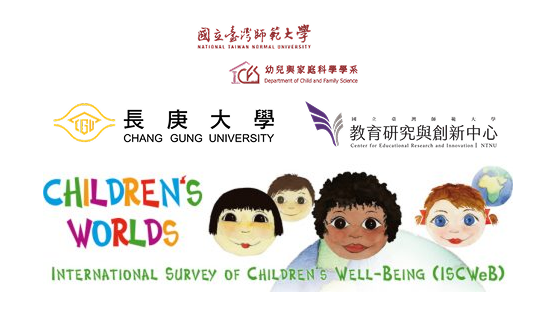Kids in Taiwan: National Longitudinal Study of Child Development and Care (KIT) brings together experts from various fields to provide long-term data on child development through large sample sizes and longitudinal studies. It tracks health, cognitive, language, and social development, assisting research and policy formulation while enhancing the understanding of early childhood development and the value of policy application.
Growing Up Together with Children
In 2011, with funding from the National Science and Technology Council, the Center for Educational Research and Evaluation of NTNU, the Department of Human Development and Family Studies of NTNU began executing the project. The goal of the project is to establish a comprehensive long-term tracking database of early childhood development that reflects contemporary and local cultural significance in Taiwan.
The KIT has now entered its fourth phase, collecting longitudinal data on health, cognitive language, social-emotional, physical development, and family and childcare/school environments for two groups of children at 3 months and 36 months of age across Taiwan. The sample is representative and is one of the most influential databases for understanding contemporary infant and toddler development and their growth environments in Taiwan.
Data Open
KIT-M36 at 84 months old
Starting from this wave, the sample in this study has entered elementary school. In addition to the original sample, an additional sample group has been introduced:
Original Sample: Born between April 1, 2013, and March 31, 2014
Additional Sample: Born between September 2, 2013, and September 1, 2014
The survey questionnaire covers topics such as basic demographics, child development, and health, family environment and experiences, and school environment and learning conditions. Additionally, for the 36-month-old cohort, an IRT ability estimation dataset has been introduced.
Survey Data
Our Features
To observe the continuous developmental trajectory and changes of young children in Taiwan, the database independently developed assessment tools to collect longitudinal data starting from the newborn stage, including surveys and individual assessments on health, cognitive and language development, social-emotional development, physical motor development, as well as family and early childhood education/school environments and experiences. Comparative analyses across multiple years enable the identification of developmental patterns in individuals and a deeper exploration of how children grow under the influence of diverse environments. This marks the first longitudinal database in Taiwan and the Chinese-speaking world dedicated to early childhood development. In its fourth phase, the project extends its tracking period into adolescence to explore the connections between early childhood experiences and later developmental stages. This extension aims to provide insights into the continuity, variability, heterogeneity, and complexity of Taiwanese children’s development from infancy and early childhood to adolescence.

Using the ecological system theory and the life course perspective as the research framework, this study constructs evaluation indicators to systematically understand the developmental trajectories and changes of young children in Taiwan across different stages. It also investigates how the environments of family, early childhood education, and schools interact and complement each other at various stages, as well as how these influences may contribute to the Matthew effect. In addition to observing the growth trends of Taiwanese children, the study compares these trends with those from other countries’ child development databases or related research. It explores the similarities and differences in children’s development under various environmental experiences, serving as a foundation for policy formulation in Taiwan regarding children’s health, welfare, family, and childcare, as well as providing references for early prevention and intervention programs for young children.

The research team behind the KIT includes scholars and physicians from various fields, such as child development, early childhood education, national education, family education, educational psychology, early intervention, clinical medicine, survey research, test statistics, and information engineering.
Each quarter, the KIT’s newsletter shares key survey findings and introduces relevant research findings from abroad. Annually, workshops, press conferences, and other events are organized to promote the practical use and exposure of the survey data. In addition, academic seminars are held to review the current status and effectiveness of policies related to child development and childcare. By providing empirical data, the team advocates for policies that support children's development and learning at different stages, offering valuable references for the government to formulate related policies and for academic research.

How We Conduct Surveys

The database continues to collect longitudinal data on two groups of children: those at 3 months and 36 months of age. At the same time, it is developing assessment tools for the development of school-age children, as well as for evaluating family, school environments, and experiences. In the fourth phase, new assessment tools suitable for the middle school stage will be developed, and data will be collected on students’ learning and environmental contexts. The regular collection of large-scale sample data reveals distinct stages and developmental changes in early childhood, producing representative and valuable findings.

To better understand the caregiving environments of young children and examine how these environments influence their development across various domains, we have developed a series of questionnaires tailored to different developmental stages. For the preschool stage, separate questionnaires were designed for parents, relatives or close friends, and early childhood educators. For the elementary and junior high school stages, questionnaires were administered to parents, teachers, and the children themselves. The survey also incorporates individual assessment data on children's development and learning at each stage, enabling a comprehensive evaluation of their developmental progress and learning outcomes from preschool through junior high school.

In addition to collecting parent questionnaire data through face-to-face interviews, telephone and video interviews were introduced in response to the COVID-19 pandemic to enhance the flexibility of data collection and to better capture developmental changes in children across different time periods. Furthermore, in line with international trends in survey research methodologies and the evolving preferences of contemporary parents, an online survey mode for parents was launched in June 2020. Since then, some parents have been randomly selected or allowed to opt into online interviews based on their preferences.

Research Resources
KIT collaborates with various domestic institutions, including government agencies, foundations, and media organizations, providing valuable academic and practical reference resources. Additionally, numerous international longitudinal studies on child development offer researchers insights into early childhood development issues. This diverse range of resources supports research and policymaking in child development.
Read More
